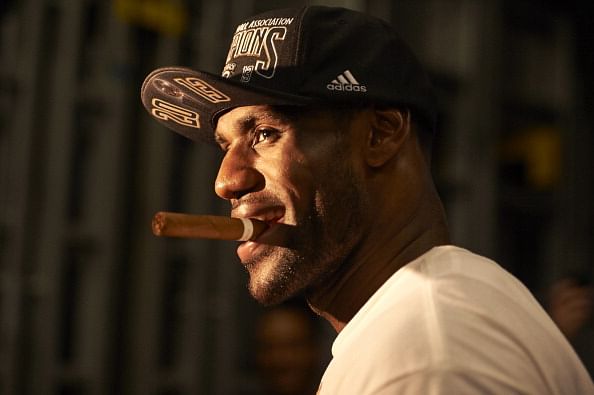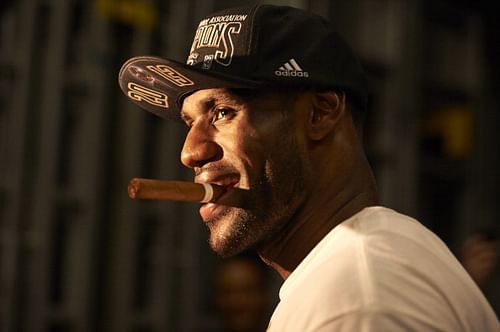
LeBron James: The man and the journey

“Be not afraid of greatness. Some are born great, some achieve greatness, and others have greatness thrust upon them.” - William Shakespeare, Twelfth Night.
Great lines and greater implications, the veracity of which has been time and again vindicated across all walks of life, by people and circumstances as varied as one can envisage. Lines that in many ways sum up the 10-year NBA career of a certain LeBron “the King” James.
Now that we know that he has made his way into basketball immortality, it might be a good time to reflect on what actually is great and not so great about the man and his journey.
When LeBron James entered the league at the age of 18, people were already talking about his hyperbolic athletic ability and immense talent. They believed that he was a player who could take over the reins and be the face of the league.
LeBron, however, wasn’t in any mood to be modest. Even as an 18-year old rookie, he planned to be great and quite possibly the greatest of all time. He had a decorated high school career behind him, a promising future ahead of him, and at the cusp of the transition he chose to gloat over the promise. Well, he had his reasons to believe.
LeBron’s basketball journey was not a lone crusade, but an enjoyable adventure that he undertook with his friends Sian Cotton, Dru Joyce III and Willie McGee, the group of four friends who anointed themselves as the “Fab Four”. And as it is with most teenage friendship stories, they chose to make collective decisions, the most important being their decision to play high school ball together. The only way they could see that happening was by choosing to attend St. Mary’s High School, a largely white private school; a school they chose over their local private school.
It was a small controversy of sorts, but LeBron and his friends echoed an unequivocal desire to combine and accentuate their talents. LeBron had an able supporting cast and he flourished. Maybe he never understood the true value of playing together with friends, because it was a given for him. It takes greatness to win things alone, but it is smarter to get all the help you can. LeBron sure had help; maybe he never realized that he needed it rather than it being a luxury.
But one can’t surely expect such complex psychological dynamics to be understood by a high school kid. That is, maybe, the greatest reason why jumping college and getting into the NBA straight after high-school can be such a risk. LeBron entered the league and expected everything to play out like the fairy-tale he had been dreaming of. He was the bedizened prince in a passionate and glory-deprived city of Cleveland, the only hope for the Cavs and the city to earn their share of basketball glory. Quite similar to what Michael Jordan did with the Bulls. Not so sagaciously, LeBron wore no. 23 (the enigmatic Jordan jersey number), did his own version of Michael’s pre-game powder toss and adopted his habits to the level of it almost being anti-semantic and irrational. He assumed greatness as he promoted himself as the heir to Michael and staked his claim to be one of the greatest of all time.
Now, equalling Michael is a forbidden dream in the game. To the basketball fraternity, Jordan was just in a different stratosphere. Claims to equal him, challenge him or even dare to compete with him were always met with cruel calumnious repudiations and critique. When Iverson crossed over Michael, he was the insolent kid. When Reggie Miller trash-talked Michael, he was rude. When Isiah and the Pistons rebuked and defeated Michael, they were dirty. Michael was the indubitable superstar, greater than Magic, maybe even greater than Elvis. To defy him was to be faithless and almost an agnostic, who the savants and the fans would be in no mood to tolerate.